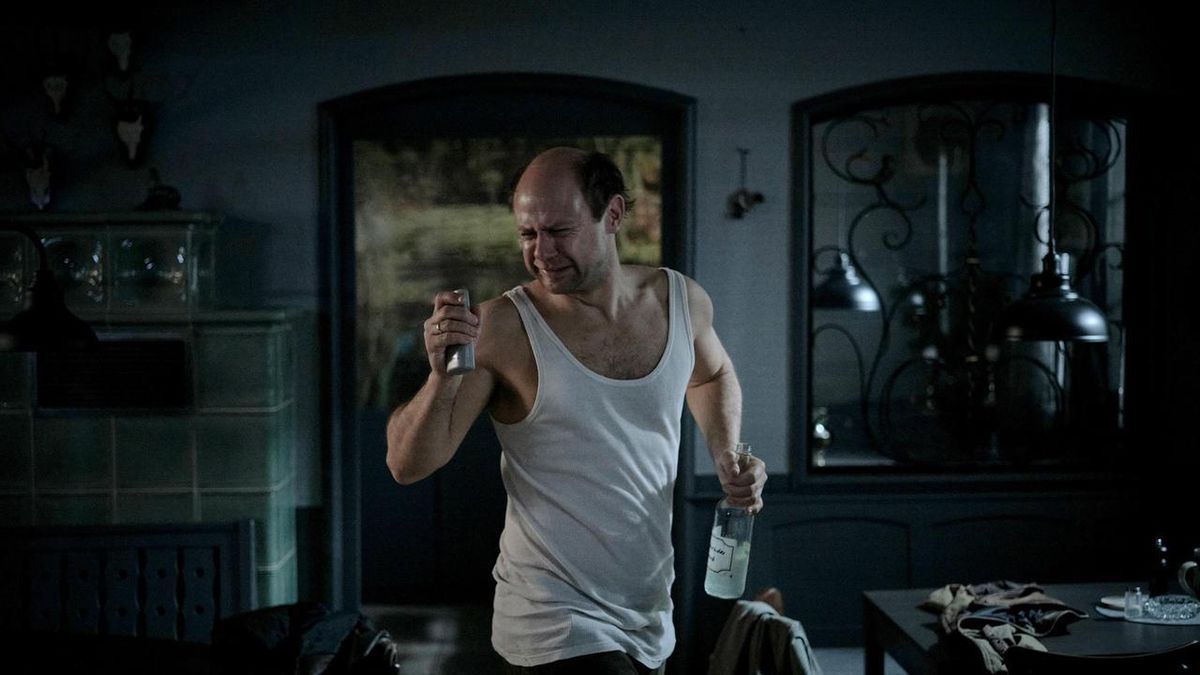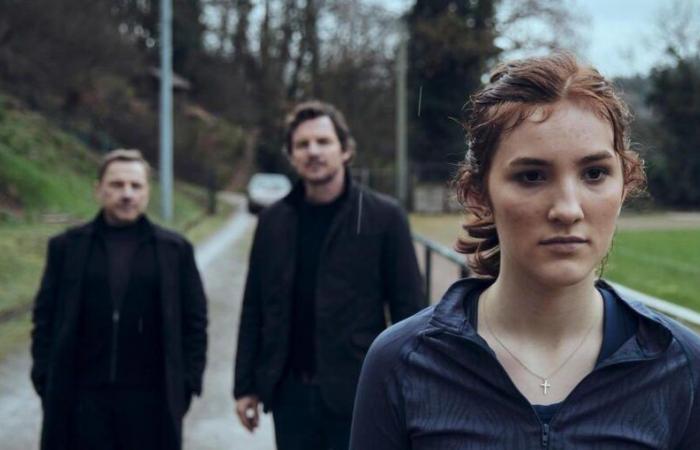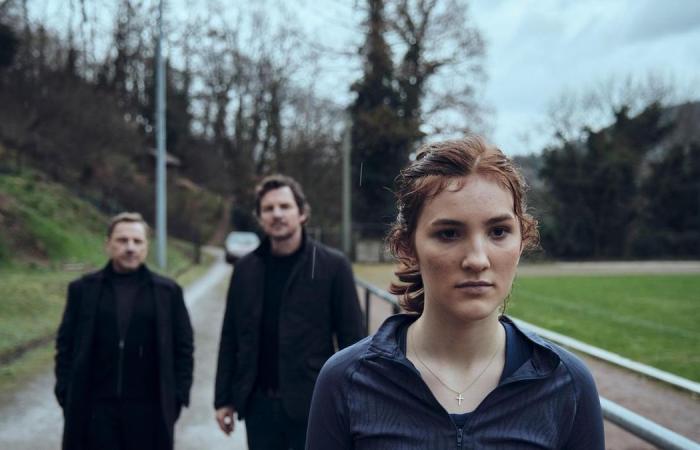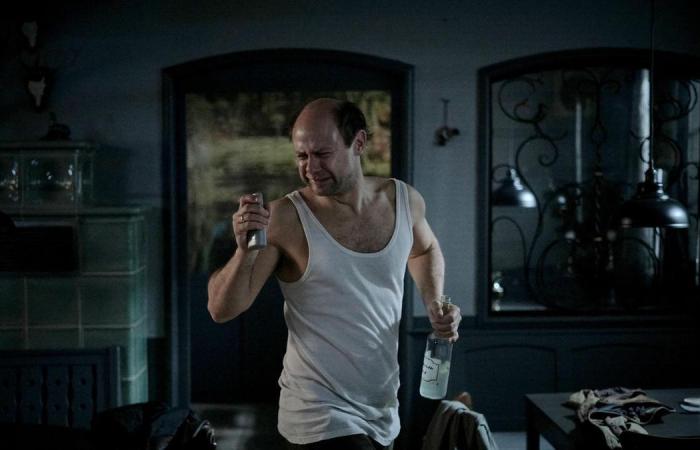TV review “Tatort” –
“Then you died for me,” says the mother – and then the daughter is dead
Breaking out of the family cage: The Stuttgart crime thriller takes you to the countryside and a rigid world. A superbly filmed tragedy.
Published: November 17, 2024, 9:30 p.m
Growing up in the country: No life on the pony farm, at least not for Emma (Irene Böhm). But she doesn’t want to tell the commissioners (Richy Müller, left, and Felix Klare) anything about it.
Photo: Benoît Linder (SWR)
Subscribe now and benefit from the read-aloud function.
BotTalk
The village nestles at the knee of the Great Lauter, there is also a listed baroque church and a picturesque castle ruin. A location scout discovered the 120-person community of Bichishausen in the Swabian Alb biosphere area for the village crime novel by author Norbert Baumgarten: a good move.
The classic combination of idyll and confinement is also served here in an unconventional way. Then Mother Riedle – Julika Jenkins, stunning in her bitter domineering – has set the table, distributed the self-kneaded bread dumplings on the plates, and suddenly all the misery of the last few days comes crashing down on her.
Her eldest daughter Hannah was murdered, the murderer has not been caught, and the last sentence she said to Hannah was: “Then you died for me.” Now she stuffs one dumpling after the other in the dark – until she can’t breathe anymore. She wants to suffocate, just as life on the Alb suffocated her daughter.
Close-up details
In general, it’s amazing how the pain is packed into images here (strong direction: Andreas Kleinert). It always seems gray in the cute place, and the black giant schnauzer barks as soon as a stranger appears. Expressively, the details in this tragic still life are zoomed in and cleverly edited: for example, from the hunting weapon in the forest to the starting pistol at the sports field. In this small world, a twitching finger and a puckered mouth become very big. And the drums thump and thump eerily into the film as if they were being conducted by Edgar Allan Poe.

Father Riedle (Moritz Führmann), who wanted to hold everything together, is desperate.
Photo: Benoît Linder (SWR)
The Riedle family’s restaurant is as shabby as the family cage; The taps in the guest rooms are dripping and the holy water kettles are hanging askew. The men of the village work in the concrete factory, tinker with the house in their free time and go hunting on the weekends; The young women train in the sports club and plan their wedding.
Hannah had wanted more. At the beginning we see them jubilantly winning the traditional “Löffler Run”: a look back. Later she ran away from the place, broke off her engagement and went to Stuttgart to do an apprenticeship as a carpenter. Her mother had condemned her, her ex-boyfriend had kneeled her, her admirer had stalked her. Her little sister Emma was injured and her father (impressively: Moritz Führmann) was desperate for family reconciliation. Now she’s dead.
Sadness everywhere
But everything gets much bleaker. Not only because Hannah’s life in the city also looked quite bleak, as Stuttgart detectives Lannert (Richy Müller) and Bootz (Felix Klare) find out. They are not the stars here, but rather stumble into the solution almost accidentally, in the fantastic, white glowing Stuttgart City Library, this haven of enlightenment – too late, too late.
Sadness everywhere, a grossly misunderstood sense of duty and bad coincidence. Between us: Life simply can’t be as messed up as it is here, even in the provinces. But if you do: you can hardly draw it better than in “Let her go”.
Dear Alexandra is an editor in the life department, with a focus on theater and socio-political issues. Studied German and English in Konstanz, Oxford and Freiburg i Br.More info
Found an error? Report now.
4 comments








